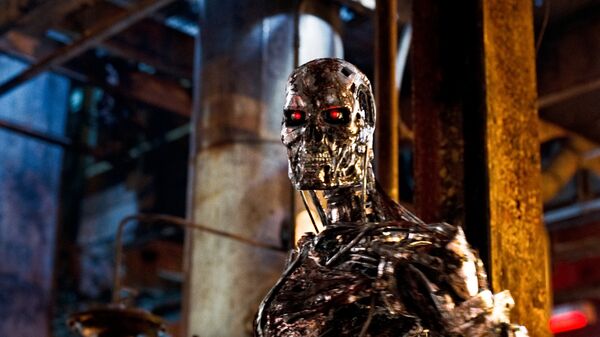The highly intelligent machine-based artificial intelligence lifeforms of the future won’t necessarily rise up and destroy humanity, Dr. James Lovelock, one of Britain’s most respected scientists and futurists, has said.
Lovelock, co-creator of the celebrated Gaia hypothesis, which suggests that living and non-living organisms interact to create a complex self-regulating synergistic system helping to perpetuate life on Earth, is convinced that cybernetic organisms will come to rule the planet by the end of the 21st century, given their extreme intelligence potential.
“Anything that starts off 10,000 times faster has got quite a head start,” he said, speaking to Daily Mail contributor John Gray.
“The new way that they will be able to share and spread information among one another will be so much faster. Therefore, their evolution will be much faster,” Lovelock added.
Lovelock, who recently published a book on the beings he thinks will emerge from today’s fledgling artificial intelligence systems, argues that contrary to fears that their rise will mean humanity’s demise, the reality is somewhat less disconcerting. Instead, cyborgs will coexist with humans, but treat us similarly to how we treat plant life.
“Cyborgs will be much more than our children, because they are totally different and have their own origins. But the idea that they will replace us is silly. We would co-exist with them just as we coexist with plants. They will view us much in the way that we view plants – slower. They might very well find certain aspects of us interesting, in the same way that we might go to Kew Gardens,” the scientist quipped.
This new lifeform will not only be conscious, but be “more conscious than we are,” because of its immense advantage in computing speed compared to that of human brains. “There’s so much more time to get impressions, senses, feelings, everything,” Lovelock stressed.
“I see hyper intelligence as the next stage in the evolution of Gaia,” the academic noted. “The key thing is we have moved away from the era in which humans had a significant effect on the ecosystem into what I’ve called the Novacene – where the predominant form of life will not be organic.”
According to Lovelock, humanity should be excited, not terrified, by the rise of the cyborgs, since their immense intelligence and information processing capabilities may help us and the planet avoid a catastrophic mass extinction like the one which killed off the dinosaurs.
Dr. Lovelock, the winner of numerous awards for his contribution to environmental sciences, will celebrate his 100th birthday next week.



